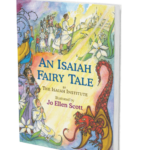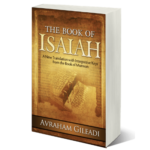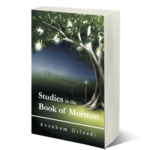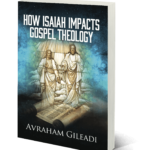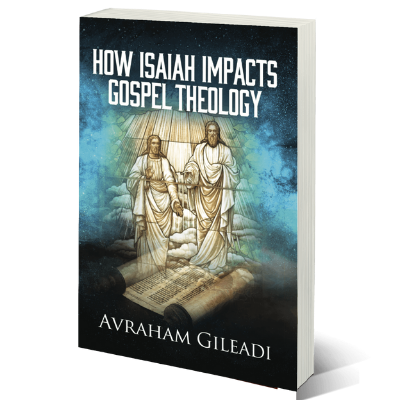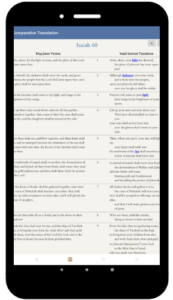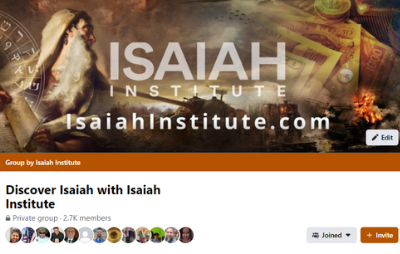Seven Keys for Understanding Isaiah
by Avraham Gileadi, Ph.D.
1. Why Understanding Isaiah Has Waited until the End-Time
Preconceived ideas, spiritual inertia, mental blocks, fear of the unknown, and just plain ignorance—all have prevented people from understanding the prophecies of Isaiah. Although Isaiah is the most frequently quoted prophet in all of sacred scripture, and although the Lord made it a commandment to search Isaiah’s words, most people who have attempted it have either given up or, worse, indulged in speculation.
You can hardly blame anyone. Isaiah himself says that God commanded him to record his prophecies “in a book for the end-time” (Isaiah 30:8). Only then would his people understand them, as he says: “In that day shall the deaf hear the words of the book and the eyes of the blind see out of gross darkness” (Isaiah 29:18)—referring to his own book, the Book of Isaiah. Nephi concurs: “In the days that the prophecies of Isaiah shall be fulfilled men shall know of a surety, at the times when they shall come to pass. . . . for I know that they shall be of great worth unto them in the last days; for in that day shall they understand them” (2 Nephi 25:7–8).
Indeed, understanding Isaiah has waited until the literary tools required to uncover his message have become available. In spite of people’s sincere desire or best efforts, only a hands-on knowledge of the Book of Isaiah’s internal mechanics could accomplish it.
2. A Translation from the Hebrew Must Convey the Meaning
It may seem self-evident that if we are trying to understand Isaiah from an English rendering, then it needs to reflect as closely as possible the meaning and sense of what the Hebrew text is saying. And yet, many people today still cling to antique translations such as the King James Version for their “traditional” and “poetic” value rather than accuracy. Even though one of thirteen Articles of Faith declares, “We believe the Bible to be the word of God as far as it is translated correctly” (Articles of Faith 1:8), we often see inordinate reverence for the KJV—almost as if it was the scriptures’ original tongue.
Take the problematic Hebrew word nes, for example. It is translated three different ways in the KJV: “ensign,” “standard,” and “banner.” Yet the word nes in the Book of Isaiah is a key word that functions as a pseudonym or codename of God’s end-time servant, on the one hand, and of the end-time king of Assyria, on the other. It therefore becomes an important term to translate consistently. One figure is a rallying point for God’s people, the other for their enemies.
3. Isaiah’s Is an End-Time Scenario as well as a Historical Scenario
Literary structures in the Book of Isaiah play a key role in revealing God’s prophetic message for our day. Seven overarching structures, which Isaiah has layered one upon another, determine his book’s overall composition. They create the forest framework into which he plants the trees, the individual passages we read on the surface that are only a part of the message. Knowledge of underlying literary patterns is essential if we would understand what his writings are all about.
Linear structures follow a timeline from beginning to end. The structure, Trouble at Home, Exile Abroad, and Happy Homecoming, for example, shows that Israel’s history doesn’t end with its ancient apostasy and exile but ends with its return from dispersion at the end of the world.
Another structure—Test One, Test Two, and Test Three—resembles the Greek Odyssey as God’s end-time people face three obstacles in order to qualify for deliverance from destruction. The tyrannical king of Assyria forms the equivalent of the one-eyed Cyclops who challenges Odysseus; idolaters and their enticements are the equivalent of the sirens who woo him; and false brethren are the equivalent of his wife’s false suitors who squander his inheritance.
Isaiah’s synchronous literary structures transpose his entire book into an allegory of the end-time. In that context, the names of ancient nations and persons function as codenames of end-time nations and persons. Egypt, the great superpower of the ancient world, becomes the type of the great end-time superpower, America. Assyria, a militaristic power from the North that conquered the ancient world, becomes the type of an end-time world power from the North that conquers the modern world. And so forth.
4. Isaiah’s Prophecies Reflect a Hebrew Typological Worldview
Isaiah’s Hebrew worldview—that sacred history repeats itself—permeates his prophecy. Says the writer of Ecclesiastes, “That which has been is that which shall be, and that which has been done is that which shall be done. There is nothing new under the sun. Is there anything of which it may be said, See, this is new? It already has been of old, in times before us” (Ecclesiastes 1:9–10). Jesus makes this an interpretive key in 3 Nephi 23:3, when he says that “all things that he [Isaiah] spake have been and shall be”—they happened in the past and will again in the end-time.
Isaiah uses this manner of prophesying when he predicts thirty end-time versions of ancient events: Israel’s apostasy, the Babylo¬nian captivity, the callout of Abraham, Lot’s deliverance from Sodom, the destruction of Sodom and Gomorrah, Assyria’s world conquest, Assyria’s invasion of the Promised Land, Assyria’s siege of Jerusalem, the Egyptian bondage, Israel’s exodus out of Egypt, its wandering in the wilderness, the conquest of the Promised Land, the rebuilding of the temple, and so forth. All repeat themselves at the end of the world.
5. The Book of Isaiah Forms a Web of Literary Interconnections
Isaiah uses many pseudonyms as codenames or aliases of God’s end-time servant and the end-time king of Assyria. Until we search out and connect these terms, therefore, we will fall short of perceiving the full extent of Isaiah’s prophetic message. As we do, on the other hand, an entire end-time scenario opens up, creating a prophecy within a prophecy.
Terms such as the Lord’s arm, hand, ensign, rod, staff, light, voice, darkness, anger, wrath, and so forth form connecting links throughout the Book of Isaiah that identify God’s servant and the king of Assyria. The Lord himself appears under several such pseudonyms. They provide clues to these persons’ character traits and the end-time roles they perform.
6. Isaiah’s Prophecies Speak of Two Distinct Messianic Persons
A crucial thing to keep in mind is that there exist two kinds of messianic prophecies. First are prophecies that predict the coming of an end-time servant of God who restores God’s ancient covenant people—the Jews, Ten Tribes, and Lamanites of today—by preparing them for the coming of Israel’s God Jehovah to reign on the earth. Second are prophecies that predict the coming of Israel’s God Jehovah.
Many messianic passages of Isaiah define what is clearly Israel’s temporal salvation or physical deliverance, involving a messianic person who restores Israel’s twelve tribes just prior to the coming of Israel’s God Jehovah to reign on the earth. They don’t define Israel’s spiritual salvation, which is a function of Jehovah himself.
Word links provide internal literary evidence of Messiah’s identity as Israel’s God Jehovah. Isaiah 53:5, for example, reads, “He was pierced for our transgressions, crushed because of our iniquities; the price of our peace he incurred, and with his wounds we are healed” (Isaiah 53:5). But the “transgressions” and “iniquities” of his people that Messiah takes upon himself, and the “peace” and “healing” that he generates on their behalf are functions specific to Israel’s God Jehovah throughout the Book of Isaiah. These word links leave no doubt that the suffering person of Isaiah 53:1–10 is Jehovah God of Israel.
7. People or Persons Isaiah Describes Reveal a Ladder to Heaven
People who appear in the Book of Isaiah aren’t just incidental to his prophecy. They additionally represent distinct spiritual levels, some higher, some lower, on a ladder to heaven. Each category within this hierarchy corresponds to a particular covenant and its laws that people are willing or unwilling to keep. Beginning with the lowest, seven spiritual categories are Perdition, Babylon, Jacob/Israel, Zion/Jerusalem, God’s “sons” and “daughters,” seraphim, and Jehovah.
As people ascend the spiritual ladder by keeping the laws of God’s covenants pertaining to each level, they grow more like God and acquire his divine attributes. Isaiah’s creation theme shows how God continues to create or re-create persons closer to his own image and likeness as they advance from one category to the next. Even the heavens and the earth participate in this re-creation. Wicked persons, on the other hand, are de-created, becoming less than they were.
A time of testing precedes people’s spiritual ascent or rebirth. That trial period forms a descent phase in which those with whom God makes a covenant must prove faithful under all conditions. With each ascent, God’s tests become correspondingly greater as persons are required to keep a higher law. The blessings of higher covenants and their laws, however, increase exponentially. Whether God’s people ascend as a nation or as individuals, the process is the same: their descent phase involves humbling and overcoming opposition while their ascent phase is marked by joy and exultation. Israel’s Messiah established the pattern of descent before ascent. Descending below all, he ascended above all to his Father throne.
(Excerpts taken from the book, Becoming Kings and Queens of the Gentiles, pp 5–26.)






